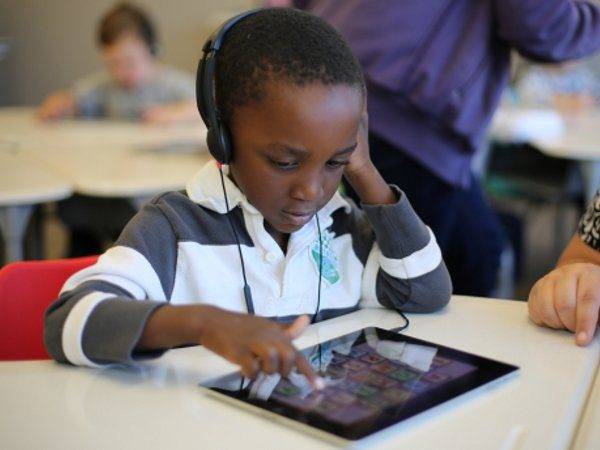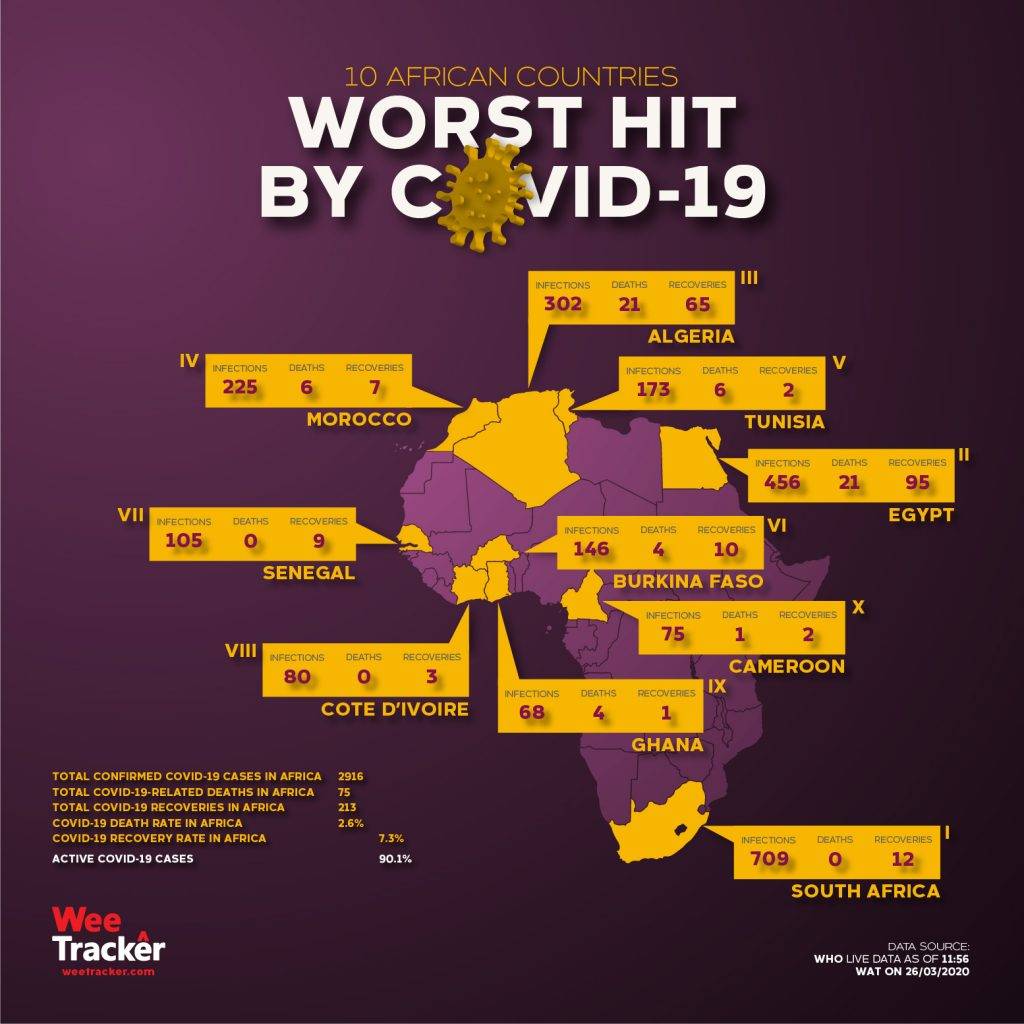The COVID-19 Pandemic Is Giving Edtech An Impromptu Litmus Test In African States

COVID-19 presents African edtech with an unlikely opportunity
Across the African continent, the coronavirus (COVID-19) pandemic has infected no less than 5,164 persons and caused 161 deaths.
With travel bans, lockdowns, curfews, and cessations of movement among measures adopted by African governments to curb the spread of the novel coronavirus, schooling has generally been halted in several countries.
And one of the results of the suspension of formal academic activities in various countries is the emergence of edtech or e-learning platforms as a way around the COVID-19-enforced closure of schools.

The United Nations Educational, Scientific and Cultural Organization (UNESCO) estimates that nationwide lockdowns and closures are impacting over 80 percent of the world’s student population. This means that over 1 billion learners have had classes disrupted globally due to the COVID-19 pandemic.
Due to the fact that several countries have implemented localized closures impacting millions of additional learners, it is understood that UNESCO is supporting countries in their efforts to mitigate the immediate impact of school closures, particularly for more vulnerable and disadvantaged communities, and to facilitate the continuity of education for all through remote learning.
In Sub-Saharan Africa, a combination of private endeavour and government effort is seeing remote learning being put through what could be thought of as an impromptu litmus test. And edtech is at the centre of it all.
“Following the COVID-19 outbreak, 95 percent of all schools globally have been asked to shut down,” claims Boye Oshinaga, founder and CEO of Nigerian edtech startup, Gradely, who shared his thoughts with WeeTracker.
“This [closure] has forced the education sector to rethink its strategies for remote learning. Every crisis is an opportunity and we believe that this is edtech’s chance to show that remote learning is not only possible but can actually be more optimal.”
In Nigeria, an estimated 25 million students are presently out of school, and school leaders and educators are eager to do something about it. Hence, e-learning is increasingly being called upon even though it has hitherto been largely ignored.
How Remote Learning Is Keeping Classes Going In Africa
Last week, it was reported that the government of Ogun State, South-Western Nigeria, has provided a temporary solution to help its pupils stay sharp educationally while they stay at home.
The government issued a directive that the students in the state would be provided with tele-tutoring at certain hours of the day. This announcement, which was also shared on Twitter by the state governor, Dapo Abiodun, enjoined the students to tune in to the state’s local television station for the lessons.
I have directed that, effective from today March 24, 2020, the Ogun State Television, OGTV commence transmission of digital classes for primary and secondary school levels, to compensate for time lost due to the restriction order our Government placed on schools across the State pic.twitter.com/kd1PeFd4zF
— Prince Dr. Dapo Abiodun – MFR (@dabiodunMFR) March 24, 2020
In Lagos, Nigeria, despite a government order to lockdown schools, learning has continued in some schools thanks to Google Classroom. As covered by TechCabal, while students and teachers are not on school premises, teachers prepare lesson plans and share them with students in a few minutes via the e-learning platform.
As one teacher put it, “We log into our work email, create a class and invite the students via their school email. When the students accept the invitation, they have access to the instruction and materials you post.
“The students access classes and work uploaded by each teacher teaching in that class. We upload audio, pictures and videos. They can leave you questions via the comments section and you’ll receive a notification via email.”
Besides Google Classroom, some teachers are also using tools like Zoom for real-time audio and video interaction and Edmodo for assignments and quizzes. Also, edtech platforms like uLesson, Gradely, and eLimu, which have always supplemented regular school curriculum, are finding more use in these times.
As Oshinaga pointed out to us, “Using technology, teachers can extend themselves in virtual environments using tools that allow them to create assignments, tests, notes, and videos. Platforms such as Google Classroom, Edmodo, and Gradely provide tools to do just this.
“Also, content platforms like Khan Academy, uLesson, Simbibot and Gradely have troves of practice, video lessons and other materials that teachers can recommend to keep children learning. These tools are no longer just nice-to-haves but must-haves if our children won’t lag behind,” he re-emphasised.
The Kenyan Corner
In Kenya, the government is offering radio classes on the Kenya Broadcasting Corporation (KBC) every morning at 11 am and afternoon at 2 pm. But beyond that, telcos are partnering with institutions and subsidising costs on online learning platforms.
For example, United States International University-Africa (USIU-Africa) recently partnered with Kenya’s largest telco, Safaricom, to provide subsidised e-learning tariffs to students in Kenya in order to facilitate online learning and teaching. Telkom Kenya and Daystar University also launched a similar intervention.
Airtel Kenya has also announced free internet access for students while online platforms like Zeraki Leaning, BBC Learning, and Futurelearn are enabling remote learning in Kenya.
Other Countries
In South Africa, MTN and Telkom have provided free access to educational sites of different schools and training. For MTN, up to 100 schools have been added to the zero-rated sites, while Telkom added about 60 sites.
In Ghana, President Addo Dankwa Akufo-Addo earlier ordered the immediate closure of all educational institutions including universities and senior and basic schools in the public and private sectors from March 16 until further notice as part of efforts to protect the public against the spread of the coronavirus.
Following the closure of the universities, Akufo-Addo has directed that the ministry of education in collaboration with the ministry of communications should roll out open learning programmes.
With that in mind, MTN Ghana has since introduced an educational care package that gives subscribers access to online learning channels in the country.
It appears remote learning is now undergoing impromptu trials in parts of Africa, and with edtech fuelling the trend, this could be a defining moment for the future of e-learning on the continent.
In other words, COVID-19 may just have provided edtech with an unlikely shot at a proper audition in Africa. And it would be interesting to see how it fares.